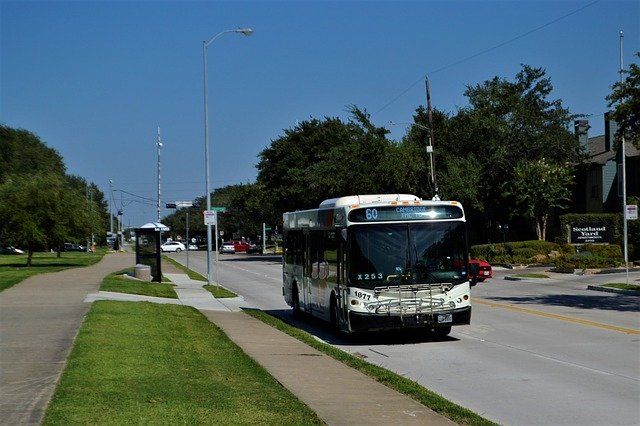Filing a government injury claim is much more complex than most people realize. The government, whether local, state, or federal, is protected by a legal principle known as sovereign immunity, which allows legal claims only under specific legal exceptions. In California, this immunity is waived under the California Tort Claims Act for certain claims involving state or local government agencies. At the federal level, the Federal Tort Claims Act provides limited permission to sue the federal government under specific conditions.
Understanding the Government Injury Claim Process
Both federal and state government injury claims involve strict rules, short deadlines, and detailed procedures. These cases require more paperwork and leave little room for error; missing even one step can result in a denied claim.
Before you can file a lawsuit, you must first submit an administrative claim to the government agency responsible for your injury. This is a mandatory first step under both federal and state law and gives the agency time to investigate and respond. An administrative claim is not a separate process, it’s an essential part of pursuing a personal injury claim against the government. If the agency denies your claim, fails to respond in time, or makes an unfair offer, you may then file a lawsuit in court.
However, if the agency approves your claim and offers a fair settlement, you can resolve your case without going to court. However, failing to file the required claim or filing one with incomplete or incorrect information can prevent your ability to recover compensation.
To help avoid these costly pitfalls, here are five common mistakes to watch for when filing a government injury claim:
Mistake #1: Missing the Deadline to File
When facing a serious injury or significant property damage, addressing legal paperwork may not be your first priority. However, timing is critical when pursuing a government injury claim. Under the California Tort Claims Act, injured individuals generally have only six months from the date of the incident to file a claim with the appropriate government entity. Failure to meet this strict deadline may forfeit your right to file a lawsuit against the government and recover compensation.
Mistake #2: Delaying Medical Treatment After the Injury
After an accident involving a local government vehicle or property, many people wait to see a doctor, hoping their symptoms will go away on their own. But medical records are one of the most important parts of a government injury claim.
Delaying medical care makes it harder to prove the accident caused your injuries. Seeing a doctor immediately after the incident shows that your injuries are real and serious.
To protect your claim, it’s important to get medical attention as soon as possible, even if your symptoms seem minor. Our team will help you find the right care and document your treatment to support your case.
Recommended Reading:
Mistake #3: Speaking to the Government Without Legal Help

After an injury involving government employees or public property, representatives from the relevant government agency may reach out to you directly. They may request a statement, inquire about your condition, or propose an early settlement. While these interactions may appear routine or harmless, they can have significant consequences for your government injury claim. Even informal remarks may later be interpreted in ways that weaken your case or reduce the compensation to which you are entitled.
To safeguard your legal interests, it is advisable to have all communication with government entities handled by an experienced personal injury attorney. Our legal team will ensure that your rights are protected, help you avoid costly missteps, and prevent you from making statements or signing documents that could be used against you.
Mistake #4: Leaving Out Key Details in Your Claim
Submitting a government injury claim involves far more than simply completing a standard form. The claim must include clear details about what happened, when and where it occurred, who was involved, and the injuries sustained. Omitting any of these essential elements can result in significant delays or a complete denial of the claim. Unlike traditional personal injury cases, claims against the government are subject to strict procedural requirements and demand a high level of accuracy.
A properly prepared claim should include:
- The specific location where the incident occurred
- The names of any involved government employees or witnesses
- A clear description of the injury or damage sustained
- An itemized summary of expenses, financial losses, or other damages
- List the full amount you are demanding for your damages.
Our legal team has extensive experience preparing claims that are complete, well-documented, and fully compliant with applicable state laws and agency protocols.
Mistake #5: Accepting the First Settlement Offer
When facing mounting medical expenses and lost income, it may be tempting to accept an early settlement offer. However, in the context of government injury claims, initial offers are frequently insufficient to cover the full extent of present and future damages. Accepting a settlement typically involves signing a release. This release may permanently waive your right to pursue additional compensation, even if your condition worsens over time.
Understanding the full value of your claim is essential before agreeing to any resolution. Our legal team can thoroughly evaluate the long-term impact of your injuries and advocate on your behalf to secure compensation that accurately reflects your current and future needs. You should not have to settle for less than what is necessary for a full recovery.
When Is a Government Entity Legally Responsible for an Injury?

Public agencies or property cause more accidents than most people realize. Whether it’s a pothole, a faulty sidewalk, or unsafe conditions at a public building, agencies at the local, state, or federal level can be held accountable when their negligence causes harm.
You may have legal grounds to sue the government after an accident involving:
- A public bus or government-operated vehicle
- City-owned sidewalks, stairways, or streets
- County-maintained parks or schools
- Federal buildings with unsafe conditions
If your claim is successful, you may be entitled to compensation for medical expenses, rehabilitation, lost wages, reduced earning capacity, emotional distress, property damage, and any ongoing or future care related to your injuries. Whether your case falls under the California Tort Claims Act or the Federal Tort Claims Act, we pursue the full amount you deserve.
Let El Dabe Ritter Trial Lawyers Help You Avoid These Mistakes
A government injury claim requires special attention to detail, a thorough understanding of legal procedures, and the ability to effectively advocate against powerful agencies. At El Dabe Ritter Trial Lawyers, we’ve helped countless clients take on government agencies and win.
Here’s how we can help:
- Identify which government agency is responsible
- Handle all communication and paperwork
- Meet all state and federal deadlines
- Negotiate with the agency or their legal team
- Guide you through filing a lawsuit if needed
There’s no room for error. Let our experienced legal team handle your claim while you focus on your recovery.
Act Now Before Your Time Runs Out

If you were injured by the negligence of a government agency or employee, don’t wait. Whether you’re dealing with a local government or a federal agency, we can guide you through the process. We offer free consultations, and you don’t pay us unless we win your case.
Call El Dabe Ritter Trial Lawyers today to get started on your government injury claim. The help you need is just a phone call away.
Disclaimer: The information provided in this blog post is not intended as legal advice and should not be relied upon as such. You should consult with an experienced attorney for advice on your specific situation.
